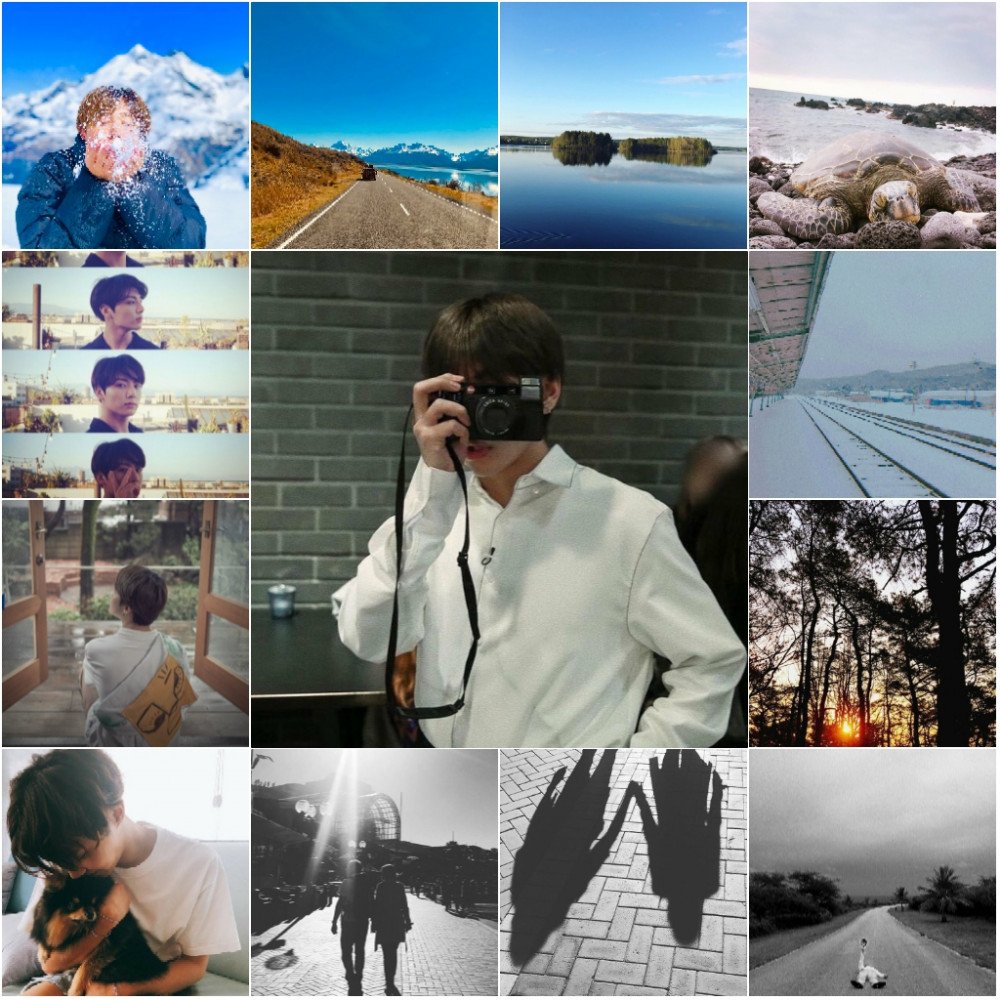
It is important to learn how to use your camera as a beginner photographer. Exposure, composition, practice, and other settings are the most important. Even though digital cameras have many amazing features, there are still many things that can be improved and learned. You must learn to recognize your flaws and work hard to fix them. Here are some tips to help you get the most from your photography. These tips aren't just for beginner photographers; they also work well for experienced photographers.
Learn about your camera
An essential skill for beginning photographers is to know the controls and modes on your camera. When you're familiar with each mode, you can adjust settings accordingly. Manual mode, for example, is great for walk and shoot photos. Aperture priority mode is another option for landscape shots. The final decision regarding the mode to choose depends on the photographer’s preference and personal taste. Some photographers recommend manual mode which allows the photographer complete control over every aspect of the photograph.

Try it.
There is a lot to learn about photography, and practice for beginners can be very helpful in this area. This field requires that you are familiar with the settings of your camera. Make mistakes to improve your understanding of what settings work and what you should do. Practice makes perfect! This will allow you to improve your photography. These are some tips that will improve your photography. Continue reading to learn more. Take up photography as a hobby! Start taking photos today!
Composition
As a beginner photographer, it's possible to have seen how others have composed their images. Great compositions can take time to master, but they can also be mastered with the help of a few compositional rules. To improve your images, beginners should be familiar with the following guidelines. These rules will enable them to take amazing photos. Plus, you might discover something you didn't know.
Exposure
Exposure is an essential topic for any photographer who wants to get started with digital cameras. It might seem complicated but exposure is essential to high-quality photography. It doesn't matter what type of camera, you should play with ISO and exposure settings. Practice will make perfect and you'll never stop learning! Also, you can learn about exposure and take better pictures.
Rule of thirds
The rule of Thirds can be used to compose pictures in many different ways, including macro photography and astrophotography. The only way to use the principle effectively is to be quick and implement it into your pictures. It can be applied to any type or photograph. This rule works well for wildlife photography as well.

Lighting
Photography is all about lighting, so learning about lighting is essential. There are many lighting options available to produce different types and styles of photographs, including soft light, backlighting and natural light. In addition to understanding how these various types of light can be used to create a scene, beginner photographers should also learn how to manipulate and move light around. For dramatic images, you can use either front or backlighting. These are some helpful tips for lighting.
FAQ
Cameras available for purchase
Cameras can be purchased online from many different places. We recommend purchasing from a trusted retailer such as B&H Photo Video. They have knowledgeable staff who can answer all your questions.
B&H ships your order quickly and securely.
If you want to learn more about shopping for cameras, check out this video.
Photography is a great job.
Photography is an art that allows you take pictures and share them. If you're willing to work hard, it can also be a great way of making money. If you want to become a professional photographer, there are many ways to do this. Start by taking photos for your friends and family as a hobby. This would help you improve your skills and build confidence. Once you have completed this stage you can move on and take on paid assignments. The best photographers are able to make a living out of their work. Photographers may be asked to photograph people at parties and weddings. However, most professionals prefer to shoot commercial projects such as product shots or advertisements.
To be a successful photographer, you must first identify what kind of photography interests you. You can then practice, experiment, learn, and master the art of photography. You can't replace experience so don’t expect to be successful overnight.
Begin with technical skills, before moving on to creativity. Photography is both technical and artistic. The best way to achieve success in photography is to master the fundamentals of composition and use the right tools.
You should also consider whether you want to pursue a career in photography full-time or part-time. Many people combine their passion for photography and other jobs. A freelance assignment might allow you to work in a local paper or magazine, while still pursuing your passion for photography. Others choose to dedicate their entire time to photography. Whatever your creative choice, you will need to be dedicated and committed to success in every field.
If you're serious about making a career in photography, you will need to invest a lot of time and effort. It is important to think carefully about what you really want to do with your life.
Why use Light Room to enhance your pictures?
The best way to ensure you have the perfect photos for your project is to start early. It's always better to take as many shots as possible and then pick the ones that will give you the most bang for your buck.
Lightroom makes it easy to do this. It lets you see how different settings impact each photo. You can also adjust these settings on-the-fly without going back into Photoshop. This lets you quickly experiment with what looks great and what doesn't.
Do I want to start taking photos as a hobby?
Photography is a wonderful way to share memories with family and friends. You can also learn about the world around your camera.
If you are interested learning how to take better photos, there are plenty online resources that can help.
You might also consider enrolling in classes at nearby community colleges or art schools. This will allow you to network with other photographers who can give valuable feedback on your work.
Statistics
- There are people out there who will pick at flaws they can only see in 100% crops of your photos. (wikihow.com)
- This article received 13 testimonials, and 100% of readers who voted found it helpful, earning it our reader-approved status. (wikihow.com)
- The second easiest way to get blurry photos 100% of the time is to use a cheap filter on the front of your lens. (photographylife.com)
- While I cannot prove that all of those spots were not sensor dust, the photo was taken during a heavy snowstorm…so I guess that 99.8% of the spots are snowflakes. (bhphotovideo.com)
External Links
How To
What are the skills to be a photographer?
Photography jobs require basic skills such as technical knowledge, artistic talent, and business acumen.
Technical knowledge includes understanding exposure, camera functions, lens type, film speeds, and developing techniques.
The ability to create art requires understanding composition, lighting and posing, as well as knowing how to use Photoshop or other editing software.
Business acumen includes budgeting, scheduling and time management. It also involves dealing with clients.
A passion for photography is essential if you are to become a professional photographer.
Take classes at school, college, or online to learn more about photography.
There are also many books available that teach you all aspects of photography.
Not only is it important to study photography, but it is also important to develop your style.
This will make you stand out among others in the field.
Photography has changed over the years. In the past cameras such as the Kodak Instamatic, Polaroid instant and other cameras were used.
Digital cameras are increasingly popular today. Photographers these days use smartphones to take pictures.
You can buy a smartphone with high-quality photos, but if your goal is to become a professional photographer, you will need a DSLR (Digital Single Lens Reflex) to take great pictures.
You can control every aspect of your photos with a DSLR including shutter speed (speed), aperture, ISO sensiblity, white balance and focus.
These features allow you to create different effects and produce stunning photographs.
You can also use these controls to alter the mood of your photograph.
You could, for example, make your subject blurry using a fast shutter speed.
You can also make them appear more mobile by increasing the light that enters the camera.
The scene can also be adjusted to change its mood by changing the color temperature.
To give the image a warmer feeling, increase the red content if there is a lot of blue light.
It can be confusing to know where to point your camera.
But once you grasp the basics, it won't be so difficult.
It is actually much simpler than you might think.
It is likely that you will only start out shooting landscapes or close-up shots when you first begin.
Do not worry! As you gain experience, your ability to capture portraits and abstracts will improve.
Once you've mastered the basics you can move on and learn more advanced subjects.
These tips will help you get started.
-
Select a location that is convenient. Pick a place where you can be relaxed and enjoy yourself.
-
Find something interesting to photograph. Try to find unusual or unique objects.
-
Take plenty of practice pictures. Practice makes perfect!
-
Experiment with different angles. You can hold your camera at different angles depending on what you want to accomplish.
-
Use different lenses. Different lenses offer different perspectives.
-
Shoot in low-light conditions. It can be difficult for you to photograph in bright sunlight.
-
Try framing your shot. Framing is one of the most important skills when capturing an image.
-
Learn how to use your camera settings. Spend time playing with your camera settings. This is the best way to improve your photos.
-
Keep learning new techniques. There are many methods to learn photography. Check out local museums, galleries, museums and libraries.
-
Read magazines and books. The best way to learn about photography is to read books.
-
Join a club. Photography clubs often hold events that encourage members to share their work.